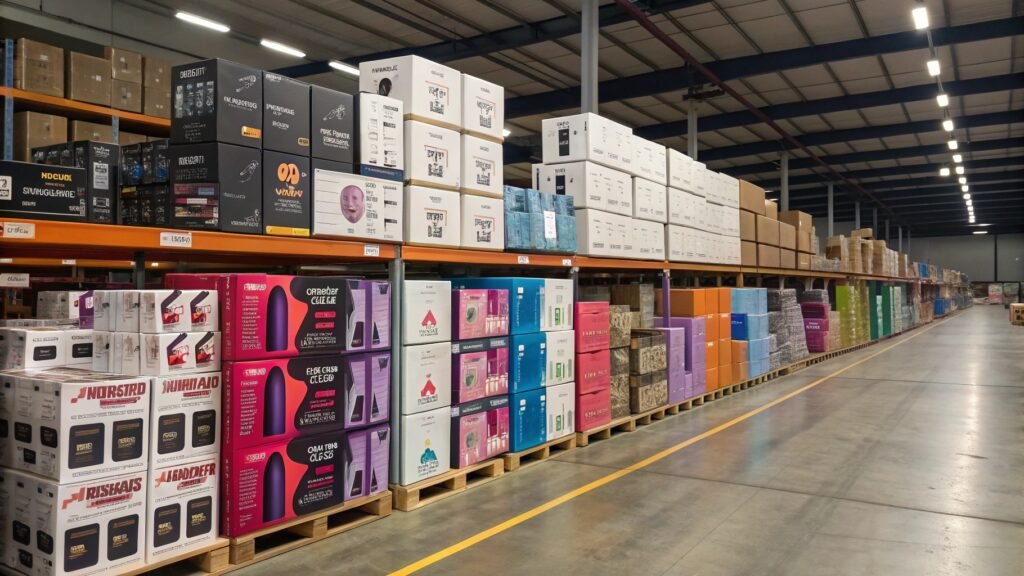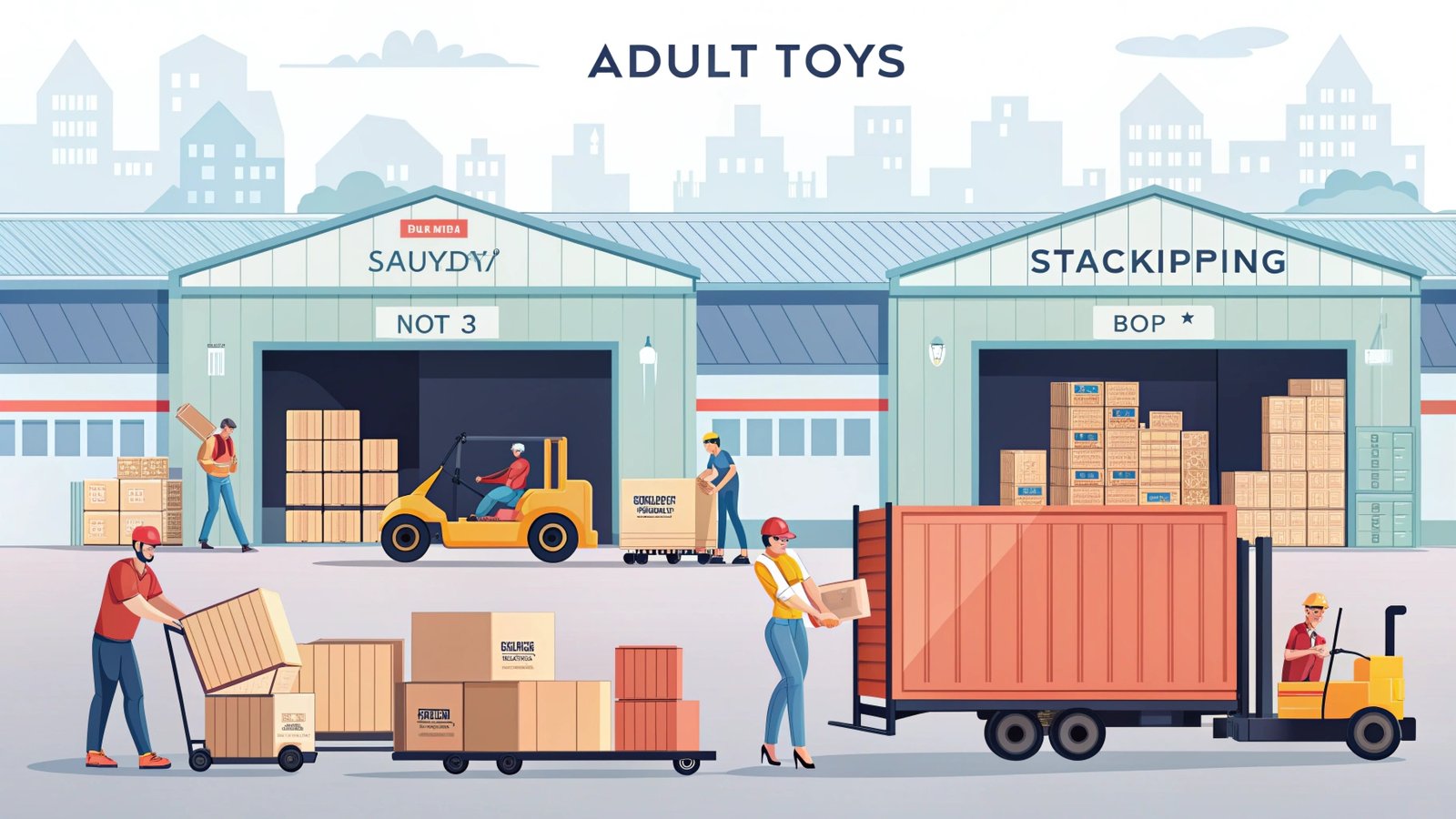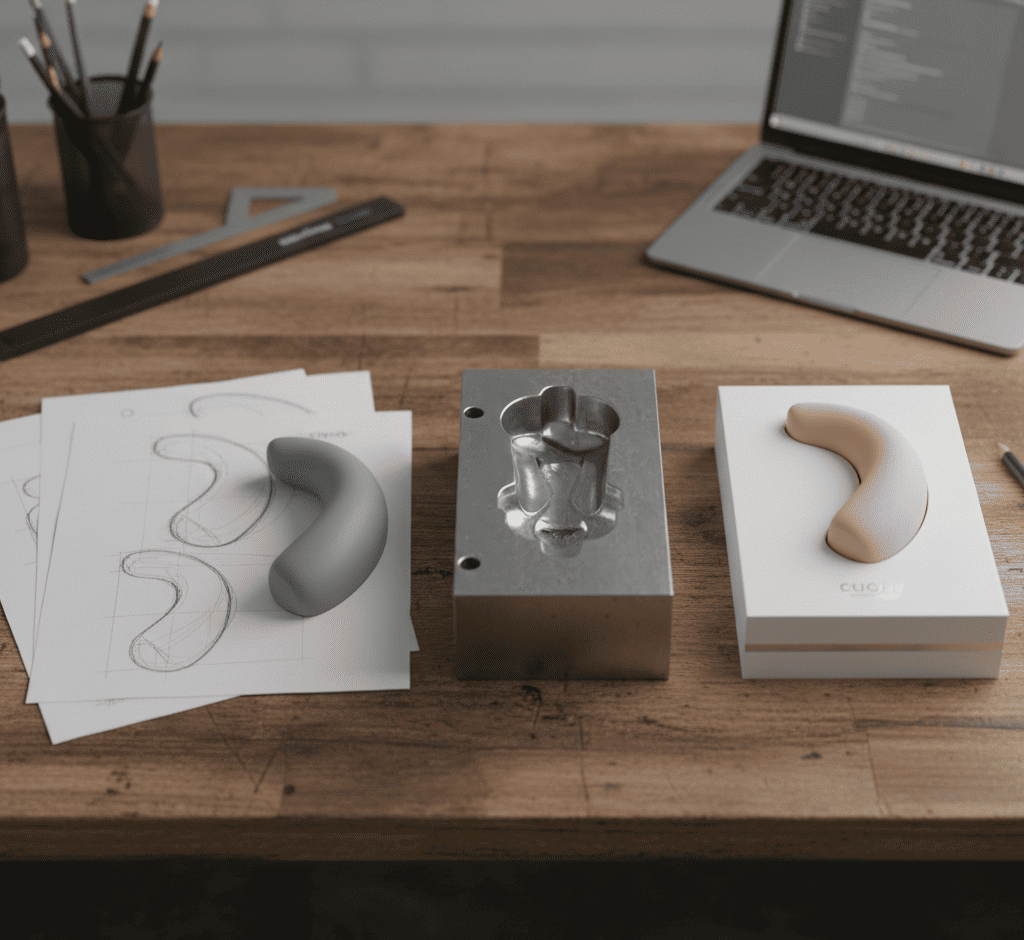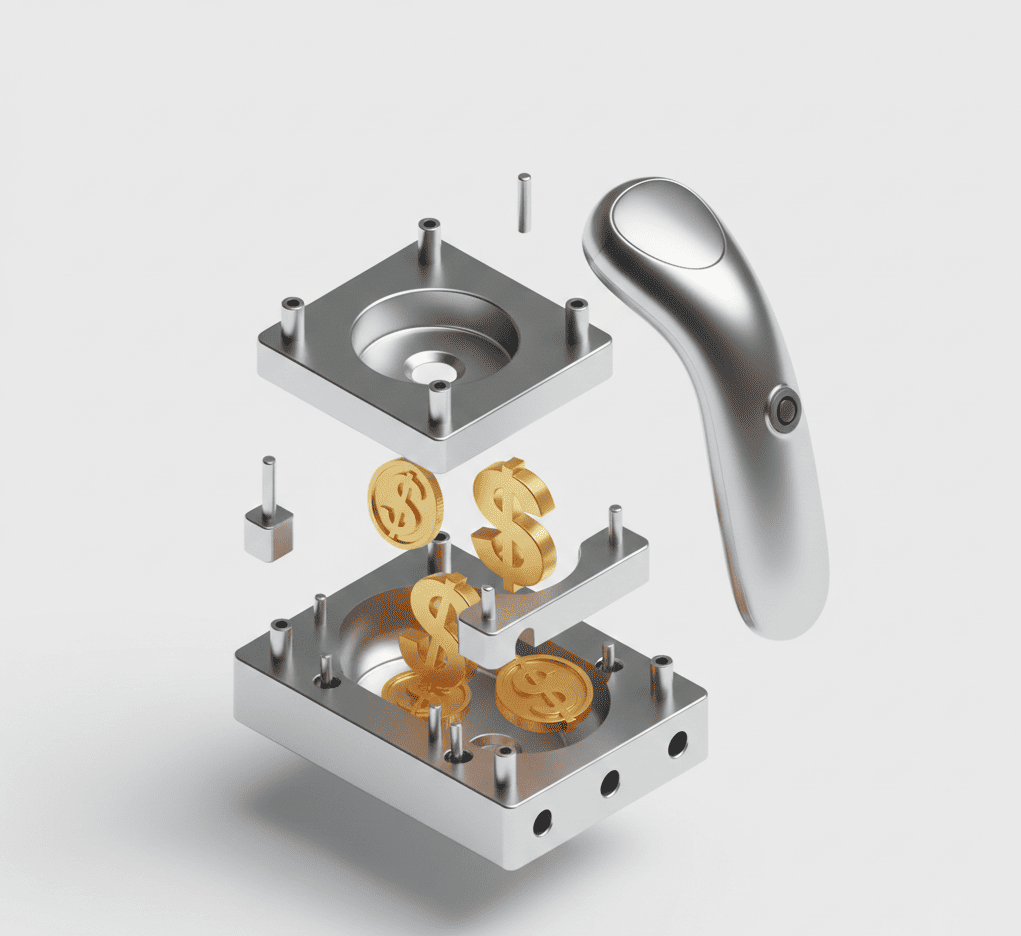I remember my first negotiation with a Chinese factory. My hands were sweating. I had no idea what I was doing. The quote seemed too good to be true—and it was.
Key Takeaway:
Here's the truth: Negotiating with Chinese adult toy factories requires specific tactics that Western buyers often miss. You need to understand cultural nuances, payment terms, MOQs, quality standards, and timing. Master these 15 proven tactics, and you'll secure better prices, higher quality, and stronger partnerships with manufacturers like us at VF Pleasure.
After 15 years in this industry, I've learned what works and what doesn't. I've seen buyers lose thousands because they skipped simple steps. I've also watched smart negotiators build million-dollar partnerships using these exact tactics.
Why Do Most Buyers Fail When Negotiating with Adult Toy Manufacturers?
Most buyers approach Chinese factories like they're shopping on Amazon. They want instant quotes. They expect Western-style communication. They rush the process.
Why they fail: Most negotiations fail because buyers don't understand Chinese business culture, rush quality discussions, ignore relationship-building, and focus only on price. Successful negotiations require patience, respect for hierarchy, detailed specifications, and long-term thinking.
Understanding the Real Problem
Let me be direct. Chinese manufacturers operate differently. We value relationships over transactions. We think long-term, not quarterly.
When buyers email me demanding the "best price" immediately, I know they'll probably fail. Why? They haven't built trust. They haven't shown commitment.
Here's what I've noticed: The most successful buyers spend time understanding our business. They ask about our manufacturing capabilities. They want to know about our quality control processes.
They don't just look at us as a sex toy factory. They see us as potential partners. That changes everything.
The buyers who succeed understand something crucial: We're not just filling orders. We're solving problems. We're creating products that need to work perfectly.
When you're dealing with adult toy manufacturers like us, quality matters more than price. A defective product can destroy your reputation. It can trigger costly returns. It can even cause legal issues.
What Should You Research Before Starting Negotiations?
You can't negotiate blind. I've had buyers contact me without knowing what they actually need. They waste their time and mine.
Preparation is key: Before negotiating, research the factory's certifications, production capacity, material options, MOQ requirements, and specialty areas. Visit their website, check their product range, read reviews, and understand industry standards for adult toys.
Doing Your Homework Properly
I'll share something that happened last month. A buyer contacted me about bulk sex toys. He knew our production capacity. He understood our material options. He'd researched our specialty in food-grade platinum silicone.
The negotiation took half the usual time. Why? He came prepared. He asked smart questions. He didn't waste time on things we clearly couldn't do.
Start with the factory's website. Look at their product categories. We specialize in vibrators, female sex toys, and male adult toys. If you need something else, you might be talking to the wrong factory.
Check their certifications. We use food-grade platinum silicone. We meet international standards. But we can't provide certain certifications like FDA approval—it's just not part of our scope. Know what's realistic.
Look at their services. Do they offer OEM? ODM? Private label sex toys? Understanding this helps you frame your negotiation.
Research typical MOQs for adult toy wholesalers. This prevents unrealistic expectations. You can't order 50 units and expect wholesale pricing. That's not how manufacturing works.
How Do You Build Trust Before Discussing Price?
Trust comes first. Price comes later. This might sound backward to Western buyers, but it's how we operate.
Strategy: Build trust by showing commitment through detailed inquiries, asking technical questions, respecting response times, understanding production timelines, and demonstrating market knowledge. Schedule video calls, ask for factory tours, and show genuine interest in long-term partnership.
Creating a Strong Foundation
Last year, I worked with a buyer named David. He spent three weeks just asking questions. He wanted to understand our process. He asked about our design team. He inquired about our quality control.
He never mentioned price in the first two conversations. He focused on fit. He wanted to know if we could meet his needs.
That approach worked. When we finally discussed pricing, we both felt comfortable. We'd built trust. We understood each other's constraints.
Here's my advice: Start with technical questions. Ask about materials. We primarily use food-grade platinum silicone and ABS plastic. Understanding material properties shows you're serious.
Ask about production capacity. We have 5-10 production lines. Knowing this helps you gauge if we can handle your volume.
Inquire about customization. Can we modify existing designs? Create entirely new products? Our custom adult toys capability is extensive, but understanding the process helps set realistic expectations.
Schedule a video call. See the factory. Meet the team. This isn't just about verifying legitimacy. It's about building human connections. In Chinese business culture, relationships matter enormously.
What's the Right Time to Start Price Negotiations?
Timing matters more than most buyers realize. Jump to price too early, and you'll get standard quotes. Wait too long, and you waste everyone's time.
When to talk money: Start price negotiations after you've discussed specifications, understood MOQs, clarified quality standards, reviewed samples, and established basic trust. This typically happens after 2-3 substantial conversations or one comprehensive meeting.
Reading the Negotiation Timeline
Here's what I've learned: Buyers who ask about price in the first email rarely become long-term clients. They're usually just price shopping. They'll go with whoever quotes lowest.
Those buyers often come back six months later with quality complaints. They chose the cheapest option. They got what they paid for.
The right time to discuss price is after you've covered specifications. You need to know exactly what you're buying. Are you looking at basic sex toys in bulk or premium custom designs?
Have you discussed materials? Food-grade platinum silicone costs more than standard TPE. If you haven't clarified materials, price quotes are meaningless.
Have you reviewed MOQs? Our minimum order quantities vary by product complexity. Custom designs require higher MOQs than standard products. This affects pricing significantly.
Have you seen samples? Physical samples tell you if quality matches expectations. Price means nothing if quality doesn't meet standards.
How Do You Negotiate MOQ Without Seeming Difficult?
MOQ discussions can get tense. Buyers want lower quantities. Factories need higher volumes. But there's a middle ground.
The Tactics: Negotiate MOQs by understanding production costs, offering multi-product orders, committing to repeat orders, accepting longer lead times, or paying slightly higher per-unit costs. Flexibility and understanding make MOQ negotiations smoother.
Finding the MOQ Sweet Spot
Let me explain why MOQs exist. Setting up a production line costs money. We need to source materials. We need to prepare molds. We need to allocate worker time.
For standard products, our MOQs might be 500-1000 units. For custom vibrators, we might require 1000-3000 units. This covers setup costs and makes production viable.
But here's what works: Multi-product orders. If you order 300 units each of four different products, that's 1200 total units. This works better than 1200 units of one product.
Another option: Accept longer lead times. If we can schedule your order when production line is available, we might reduce MOQ. This requires patience, though.
You can also pay higher per-unit costs for lower quantities. This compensates for setup costs. It's not ideal, but it's an option for testing markets.
The key is approaching this collaboratively. Don't demand lower MOQs. Ask, "What options do we have for reducing initial order quantities?" This shows respect and problem-solving mindset.
What Payment Terms Should You Negotiate For?
Payment terms protect both parties. But they need to be fair. I've seen deals fall apart over payment disagreements.
Standard Practice: Standard payment terms for Chinese factories include 30-50% deposit, balance before shipping. For established relationships, you might negotiate 30-70% or even payment terms. First orders typically require full payment before production starts.
Structuring Safe Payment Agreements
Here's reality: First-time orders usually require 30% deposit, 70% before shipping. This protects us from buyers who disappear. It protects you because we won't ship without balance.
For wholesale adult toys orders, we might offer better terms after establishing trust. Maybe 30% deposit, 50% mid-production, 20% before shipping. This gives you more control over quality.
Long-term clients sometimes get 60-day payment terms. But this requires proven track record. You need to demonstrate reliability. You need multiple successful orders.
Use secure payment methods. Alibaba Trade Assurance works well. PayPal for smaller amounts. Wire transfer for larger orders. Each has advantages.
Never agree to 100% upfront payment unless you've verified the factory thoroughly. We don't ask for this at VF Pleasure. Reputable sex toy manufacturers don't need full payment before starting.
How Do You Negotiate Better Quality Standards?
Quality determines your success. No one remembers cheap prices when products fail. Everyone remembers quality issues.
Quality First: Negotiate quality by specifying exact material requirements, requesting quality control checkpoints, defining acceptable defect rates, arranging third-party inspections, and establishing clear rejection criteria. Document everything in writing.
Setting Non-Negotiable Quality Requirements
I'll be honest: Not all factories care about quality equally. Some prioritize volume. Some prioritize perfection. You need to ensure your factory shares your standards.
Start by specifying materials. We use food-grade platinum silicone. This is body-safe. It's hypoallergenic. It's durable. Don't accept vague descriptions like "medical grade" without specifics.
Define motor specifications for vibrator wholesale products. What RPM range? What noise level? What battery life? Precise specifications prevent disappointments.
Request quality checkpoints. We do incoming material inspection, in-process checks, and final inspection. Ask for photo updates at each stage. This catches problems early.
Define acceptable defect rates. Industry standard might be 2-3%. You might want better. Negotiate this upfront. Put it in contract.
Consider third-party inspection. Companies like SGS or Bureau Veritas can verify quality before shipping. This costs extra but provides peace of mind.
What Should You Know About Customization Costs?
Customization adds value but increases cost. Understanding what drives these costs helps you negotiate smarter.
Cost Drivers: Customization costs include mold fees, design time, sample development, testing, and material sourcing. New molds can cost $3,000-$15,000 depending on complexity. Understanding these costs helps you negotiate realistically.
Breaking Down Custom Product Expenses
Let me walk you through our custom sex toys process. First, design consultation. Our team works with you to refine concepts. This takes time. It costs money.
Second, prototyping. We create initial samples. This might require special molds. For simple modifications, costs are lower. For completely new designs, expect higher expenses.
Third, testing. We test function, durability, and safety. This includes drop tests, battery tests, and motor longevity tests. Thorough testing costs money but prevents disasters.
Fifth, mold creation. Complex shapes require complex molds. Simple shapes cost less. A basic dildo mold might cost $3,000. A complex thrusting sex toy mold could cost $15,000 or more.
Here's how to negotiate: Minimize changes once design is approved. Each change adds time and cost. Work with standard materials when possible. This reduces sourcing costs.
Consider modifying existing designs rather than creating completely new ones. This significantly reduces mold costs. Our OEM sex toys service allows customization of existing successful designs.
How Do You Handle Sample Negotiations?
Samples are crucial. They verify quality before large orders. But sample costs and terms need negotiation.
Sample Strategy: Sample costs typically range from $50-$200 per unit plus shipping. Many factories refund sample costs with first bulk order. Negotiate sample quantities, turnaround time, and whether costs apply to final order credit.
Getting the Samples You Need
Here's our typical approach: We charge for samples. This covers materials and production time. But we refund these costs when you place a bulk order.
Why do we charge? Free samples attract tire-kickers. People who request samples but never order. Charging a nominal fee ensures serious buyers.
Negotiate how many samples you need. One might be enough for simple products. Complex products might need three to five for thorough testing.
Discuss turnaround time. Standard samples take 1-2 weeks. Rush samples cost extra but arrive in 3-5 days. Plan accordingly.
Request samples of existing products first. If you're developing custom products, start with our standard range. This verifies base quality before investing in customization.
For private label sex toys, samples might include different packaging options. Specify what you need upfront.
What Role Does Lead Time Play in Negotiations?
Time is money. Lead times affect inventory planning, market opportunities, and cash flow. They're negotiable to some extent.
Planning: Standard production lead times range from 25-45 days after deposit. Rush orders cost 15-30% more but reduce time to 15-25 days. Negotiate lead times based on order size, season, and production schedule.
Balancing Speed and Cost
I'll tell you something most buyers don't realize: Our production schedule fills up fast during peak seasons. September through November is crazy busy. Everyone wants inventory for year-end.
Smart buyers plan ahead. They order during slow seasons (March through June). Lead times are shorter. Costs are sometimes negotiable. We have more flexibility.
For repeat orders of wholesale sex toys, lead times decrease. We know the product. We have materials ready. Production runs smoother.
Here's how to negotiate lead time: First, understand normal timelines. Rushing beyond realistic capabilities causes quality issues. Second, offer flexibility. If you can accept delivery within a range of dates rather than a specific date, we can optimize production scheduling.
How Do You Negotiate Packaging and Branding?
Packaging affects perceived value. Branding builds recognition. Both are negotiable but require clear communication.
Branding: Standard packaging is included. Custom packaging costs $0.50-$3.00 per unit depending on complexity. Negotiate packaging materials, printing quality, assembly complexity, and whether costs decrease with order volume.
Creating Packaging That Sells
Packaging matters more than many buyers realize. Great products in poor packaging don't sell. Mediocre products in premium packaging sell better.
For adult toy wholesalers, packaging can be a differentiator. If you're selling to retail, packaging needs retail appeal. If you're selling online only, you can simplify.
Here's what drives packaging costs: Material quality. Printing complexity. Assembly time. Special features like windows or inserts.
For white label sex toys, we can apply your branding to standard packaging. This reduces costs compared to fully custom packaging.
Request packaging samples before committing. See materials in person. Verify printing quality. Ensure it matches brand image.
What Shipping Terms Should You Negotiate?
Shipping costs and responsibility matter. They affect landed costs and risk management. Clear terms prevent disputes.
Logistics: Common shipping terms include FOB (factory pays to port), CIF (factory pays to destination port including insurance), and DDP (factory pays all costs to your door). Negotiate based on experience with international shipping.
![]()
Understanding Shipping Responsibilities
Shipping terminology confuses many first-time importers. Let me simplify. FOB means we pay to get products to Chinese port. You arrange and pay for ocean freight and customs.
CIF means we arrange ocean freight and insurance. You handle customs clearance and delivery from destination port. This is middle ground option.
DDP means we handle everything. Products arrive at your door. You pay nothing extra. This is easiest but most expensive for you.
For adult wholesale direct orders, consider consolidating shipments. Multiple small orders cost more than one large shipment. Plan accordingly.
For sex toy distributors, regular shipments might qualify for better freight rates. Ask about volume discounts from freight forwarders.
How Do You Leverage Competition Without Burning Bridges?
Competition exists. Using it strategically strengthens your position. But burning bridges helps no one.
Respectful Negotiation: Mention you're evaluating multiple suppliers without revealing specific competitors. Focus on value differences, not just price. Ask if they can match certain features or terms without demanding lowest price.
Playing the Field Respectfully
I respect buyers who shop around. It's smart business. But there's a right way and wrong way to mention competition.
Right way: "I'm evaluating several factories. Your quality impresses me, but I need to ensure pricing aligns with my budget. Is there flexibility here?" This respects us while asserting your needs.
Focus on value differences. Maybe competitor offers lower price but longer lead times. Maybe they lack our custom sex toy capabilities. Highlight what matters to you beyond price.
For sex toys manufacturer negotiations, remember we talk to each other. Our industry is smaller than you think. Burning bridges affects reputation. Stay professional always.
What After-Sales Support Should You Negotiate?
After-sales support determines long-term success. Products will have issues. How factories handle problems matters enormously.
Support: Negotiate warranty terms, replacement policies, technical support access, and defect handling procedures. Standard warranty is 6-12 months for manufacturing defects. Clarify what's covered and response timelines.
Securing Post-Purchase Peace of Mind
Big mistake: Issues will arise. Products might have defects. Questions will emerge. How we handle these situations matters more than initial price.
Negotiate warranty coverage. We typically offer 6-12 months for manufacturing defects. This doesn't cover user damage or misuse. Clarify boundaries upfront.
For ongoing orders of wholesale dildos or other products, after-sales support becomes even more critical. You need reliable partner who stands behind products.
Request examples of how they've handled past issues. This reveals their problem-solving approach. Good factories own mistakes and fix them. Bad factories blame customers.
How Do You Negotiate Better Communication Protocols?
Communication makes or breaks international partnerships. Time zones complicate things. Language adds challenges. Clear protocols help.
Clarity: Negotiate preferred communication channels, response time expectations, language support, meeting frequency, and reporting formats. Establish primary contacts for different issues to streamline communication.
Creating Communication That Works
Negotiate communication expectations upfront. Prefer email? WeChat? WhatsApp? Different tools work for different people. Agree on primary channel.
For sex toy wholesale orders, communication becomes more complex with larger volumes. Having clear protocols prevents confusion.
Set escalation path. If issue isn't resolved at first level, who do you contact next? Having clear escalation prevents frustration.
What Flexibility Should You Build Into Contracts?
Contracts protect both parties. But rigid contracts cause problems. Build in flexibility for changing circumstances.
Agreements: Include provisions for volume changes, design modifications, timeline adjustments, and force majeure events. Specify notice periods for changes and associated costs. Balance protection with practical flexibility.
Writing Agreements That Work
I recommend negotiating flexibility into agreements. Markets change. Needs evolve. Rigid contracts cause more problems than they solve.
For vibrator manufacturer partnerships, contracts might include new product development terms. Who owns designs? What happens to molds if relationship ends? Address these upfront.
Include dispute resolution process. If disagreement arises, what's the process? Arbitration? Which country's laws apply? This prevents expensive legal battles.
Conclusion
Negotiating with Chinese adult toy factories doesn't have to be intimidating. Use these 15 tactics, build genuine relationships, and focus on value over just price. You'll create partnerships that benefit both sides.
Start Your Negotiation with VF Pleasure Today





























